The Timeless Appeal of Chess
Chess, an ancient game with humble beginnings over 1500 years ago, has evolved into one of the world's most beloved intellectual pastimes. Its enduring popularity can be attributed to a variety of factors that go beyond simple recreation, turning chess into a compelling battle of wits that captivates millions across the globe.
The Simplicity and Depth of Chess
The basic rules of chess are simple enough to be understood by children, yet the strategic possibilities are so vast that they have been studied by adults for generations. At its core, chess is played on an 8x8 square board by two opponents, controlling the white and black pieces, respectively. Each player aims to checkmate the opponent's king, which means putting the king in a position to be captured ('check') with no move left to escape.
This simple premise belies the deep strategic complexity of the game. Chess demands both tactical acuity and long-term strategic planning, allowing it to cater to a wide range of intellectual interests, from complex problem-solving to psychological warfare.
The Cultural Significance of Chess
Chess has a rich cultural history that grounds its popularity. It is seen not just as a game but as a reflection of intelligence, strategic prowess, and even philosophical insight. Historically, proficiency at chess was considered a hallmark of the educated elite. Today, the game is celebrated in various cultures, transcending social and economic boundaries, making it truly universal.
Chess has been integrated into educational programs in numerous countries, recognized for its capacity to improve critical thinking skills, creativity, and memory. Its applicability to other areas of knowledge and life—like mathematics, computer science, and psychology—further enhances its stature and widespread appeal.
The Role of Technology in Chess's Popularity
The advent of digital technology has had a profound impact on chess. Online platforms and chess software have made the game more accessible than ever. Enthusiasts can play against opponents from across the globe, study games played by grandmasters, and access a wealth of learning resources that were previously unavailable or difficult to obtain. Additionally, machine learning and AI technologies, epitomized by systems like Deep Blue and AlphaZero, have opened up new vistas in chess strategy, captivating a tech-savvy generation.
Esports and Streaming
Chess has also found a new life in the world of esports and streaming. Platforms like Twitch and YouTube host live chess matches and tournaments that draw thousands of viewers. Popular chess streamers not only play but also explain their thought processes, making high-level play accessible and entertaining to a broad audience. This has helped demystify the game, revealing its dynamism and depth.
The Universal Language of Chess
Chess is often described as a universal language, a common intellectual pursuit that breaks down barriers between ages, nationalities, and social classes. It is a binding force that, through the sheer beauty of its complexity and the elegance of its strategies, offers a medium for peaceful competition and exchange of ideas.
Furthermore, chess tournaments and clubs are staples in communities across the world, fostering social interactions and a sense of community among players. The game's ability to bridge diverse communities contributes substantially to its global appeal and enduring popularity.
Conclusion
From coffee shops to international tournaments, from park benches to online forums, chess continues to fascinate and engage millions. Its timeless appeal lies in its simplicity and intellectual depth, its capacity to act as a mirror of the human mind's complexities, and its power to unify people across the globe. As we forge ahead in the digital age, the game of kings shows no signs of waning, proving that its fundamentals are as resonant now as they were over a millennium ago.
Explore our large collection of luxurious chess sets!

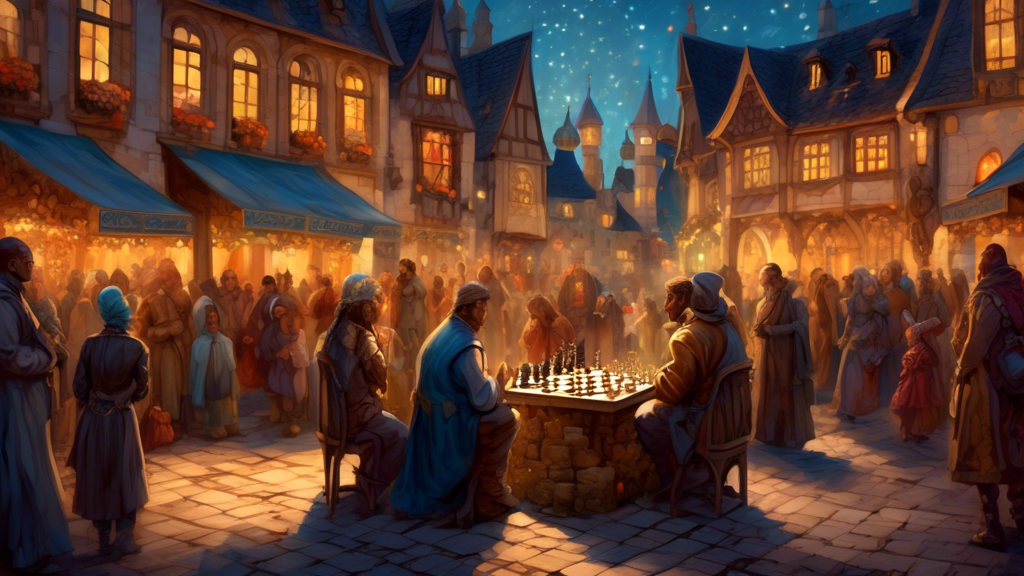


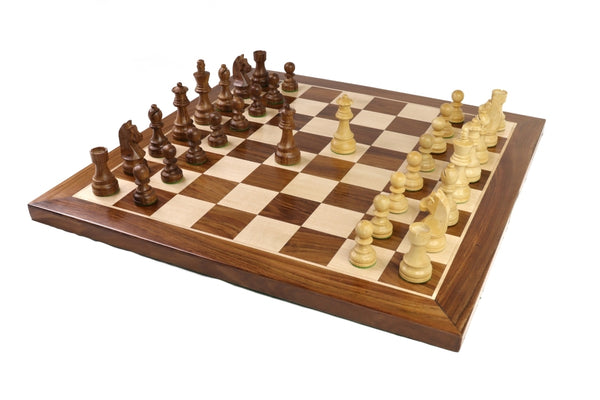













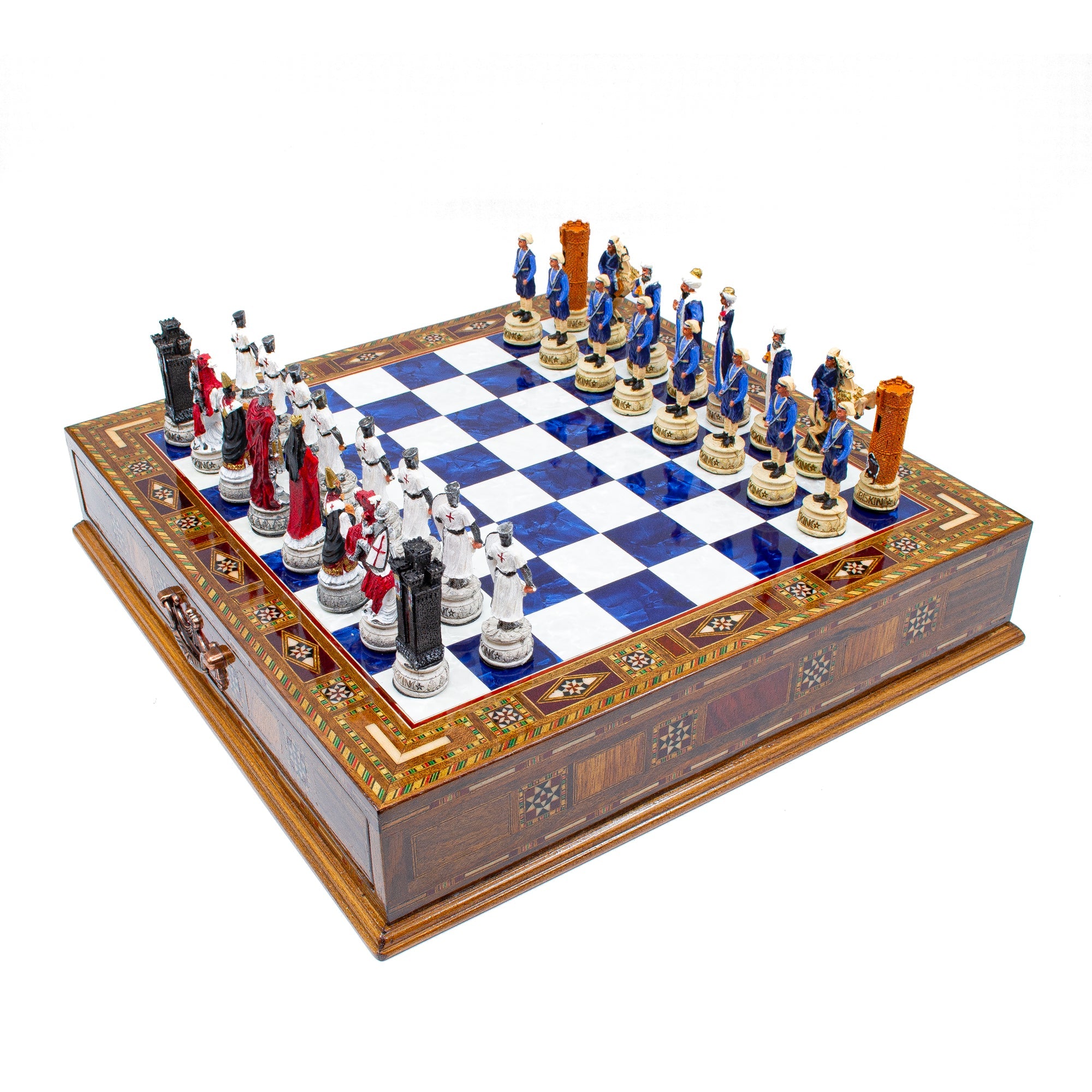
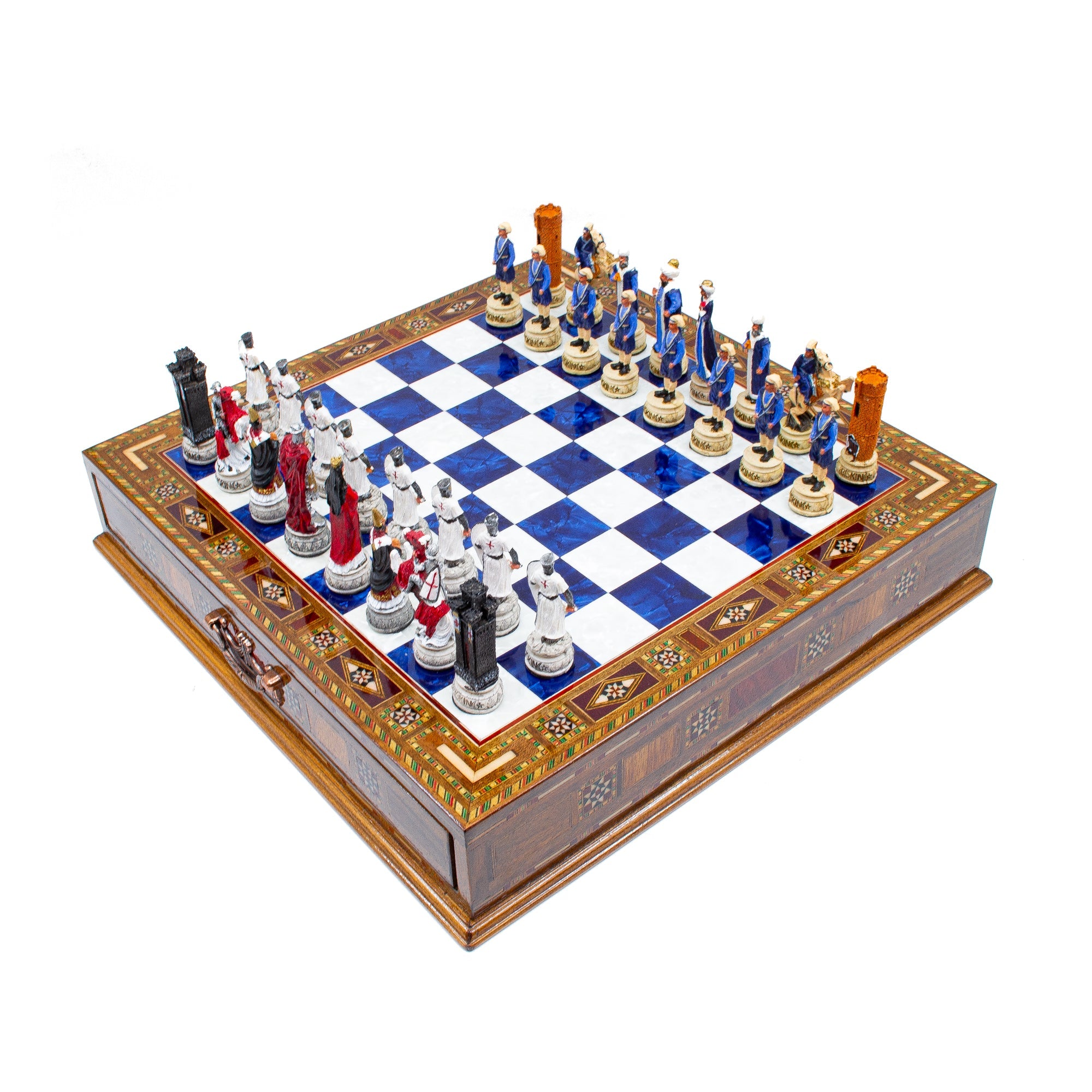
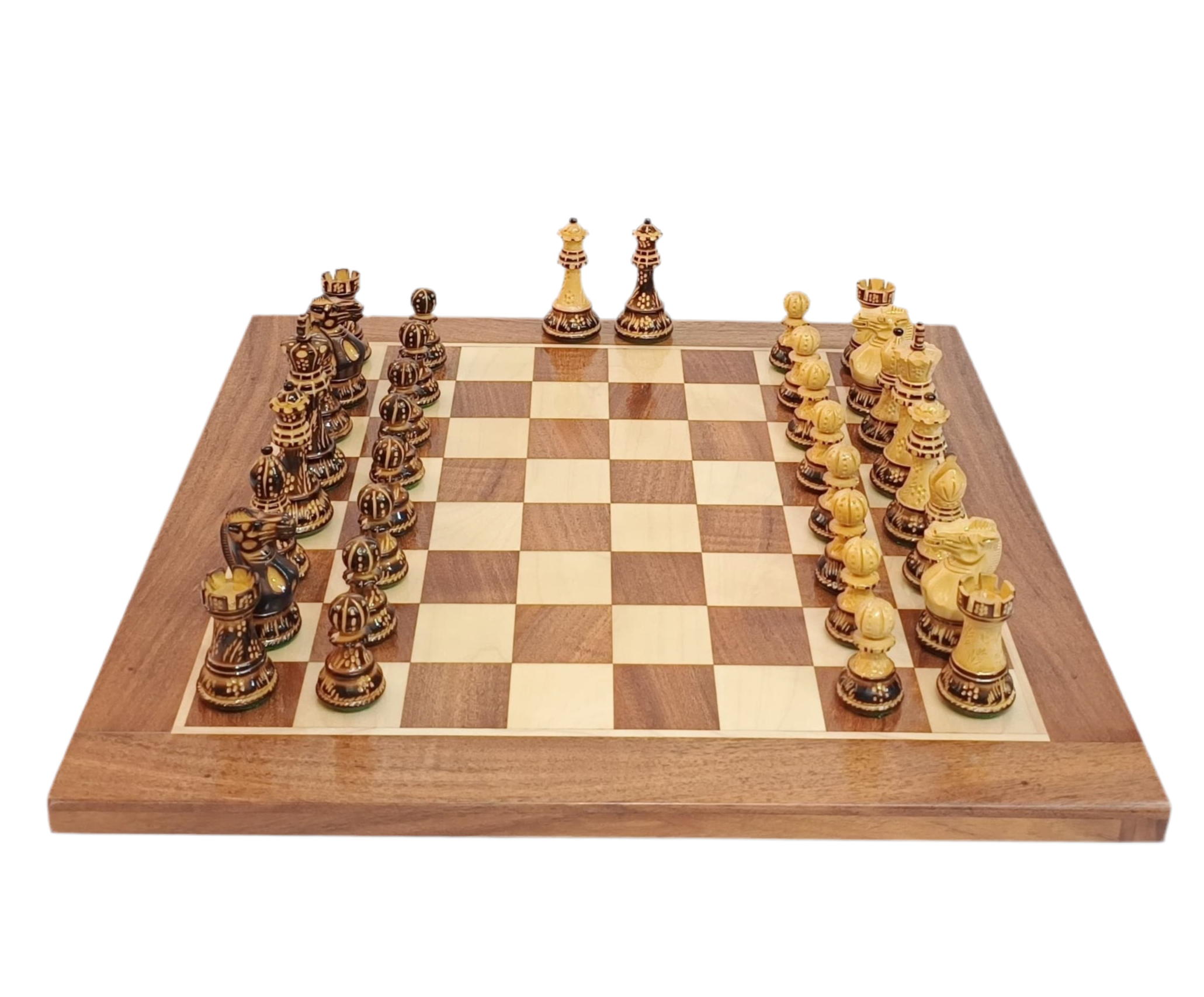
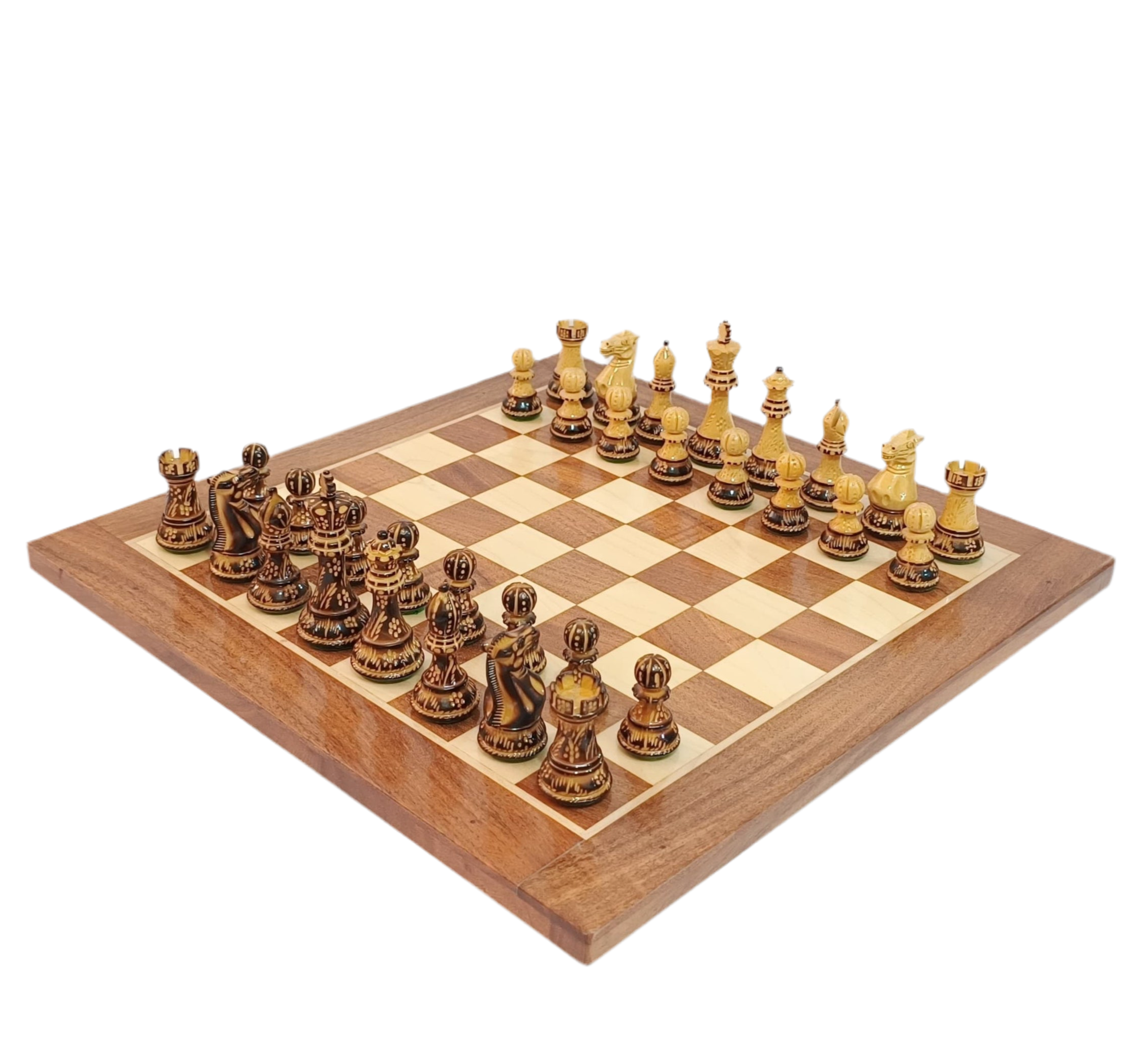





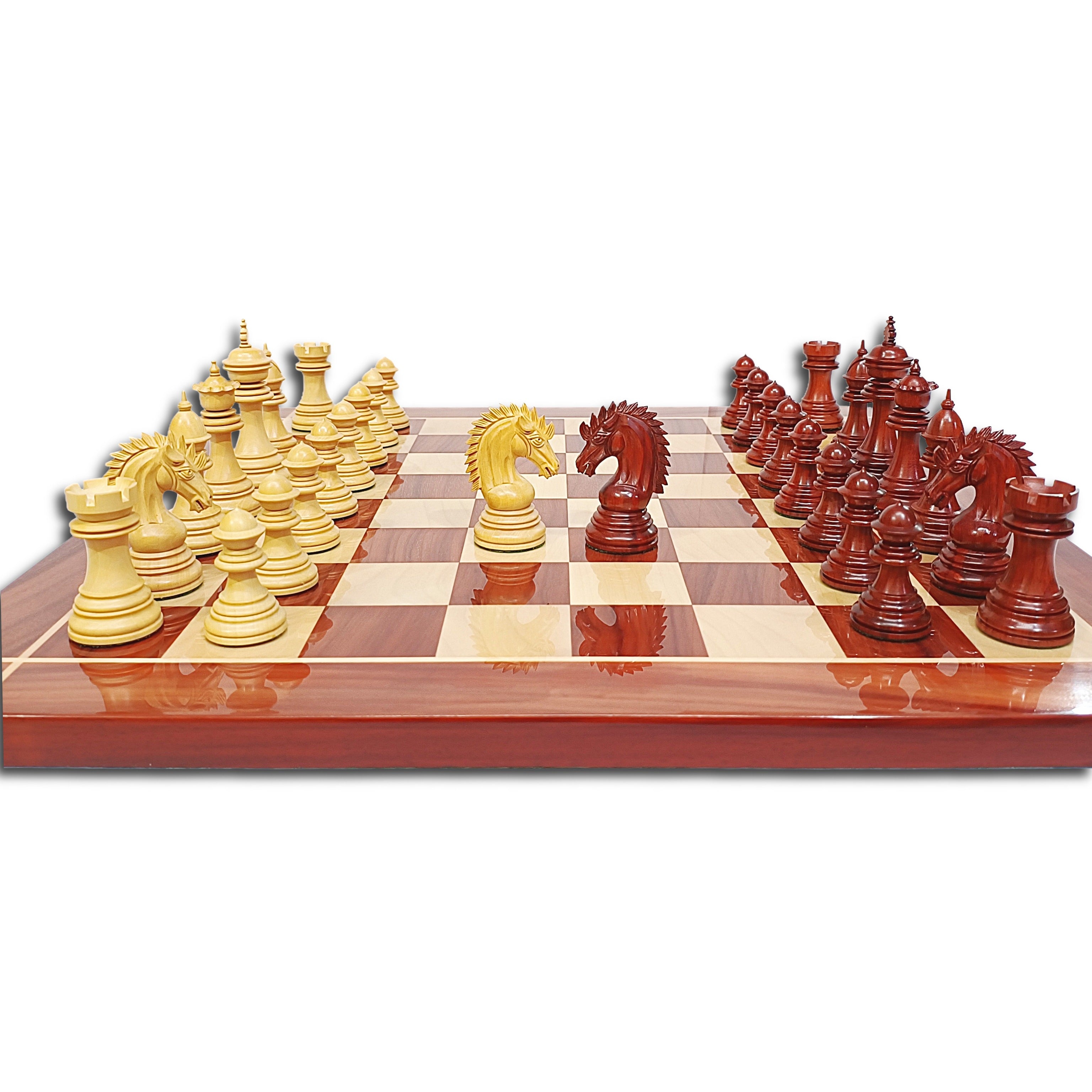



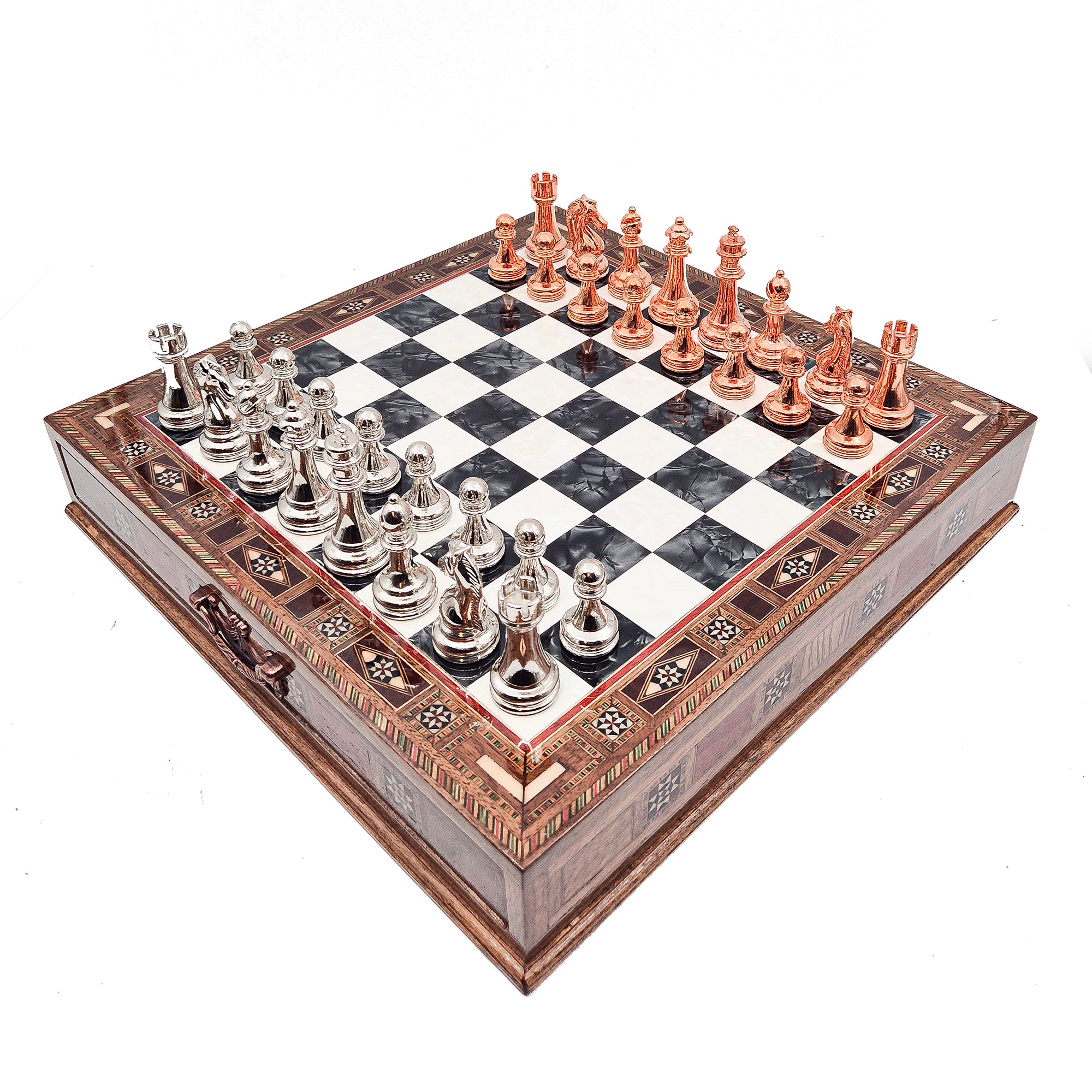







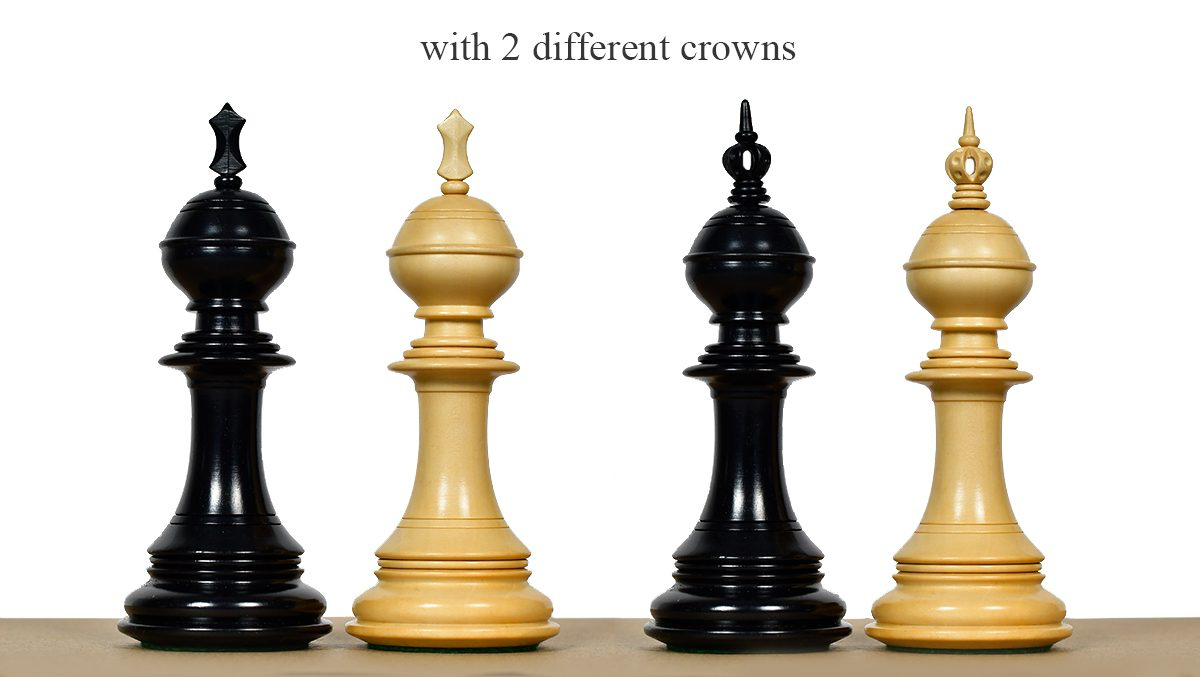




Leave a comment
All comments are moderated before being published.
This site is protected by hCaptcha and the hCaptcha Privacy Policy and Terms of Service apply.